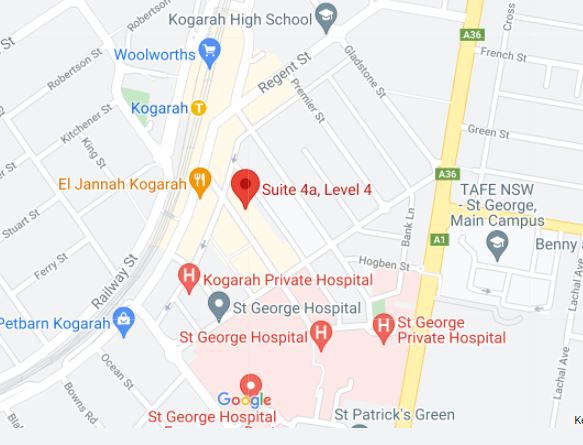Marketing campaigns, agent commission, taxes… there’s a lot to consider when it comes to the cost of selling your home. We’ve laid out the main expenses for you, so you can stay on track, and on budget.
Marketing costs
Advertising
Advertising costs vary depending on a number of factors, especially how you choose to sell and how long your home stays on the market. But there are some common costs you can’t avoid, such as listing fees (online or in print), photography for your home and floor plans.
Repairs and presentation
Pre-sale repairs and presentation can add significant costs to prepping your house for sale. Work out a budget for home staging, cosmetic upgrades, minor repairs and landscaping.
“Get an agent in before you decide to renovate,” says Kylie Davis, head of marketing, Property Solutions & Content at CoreLogic. “Often the agent has very different ideas on what makes property a dream home to live in. If it’s to change the carpet or paint the walls, do it. But if it’s putting in marble bathrooms, maybe not. Decisions must be made with the head, not the heart – think about the buyer.”
Agent fees
Commissions and other bonuses
The agent’s commission is one of the more significant costs in selling your house. Agents can charge fixed rates, a flat fee or a tiered rate that’s based on your property’s final sale price. Make sure your agent has a good track record, and that you settle on all fees before signing.
Auction and private sale fees
Advertising for private sales tends to cost less than it does for auctions. You don’t need to pay for an auctioneer, and if you accept an offer immediately, you’ll be up for less marketing costs. However, if your home doesn’t sell quickly, you’ll need to keep it on the market. This could mean continued advertising costs; you may even want to refresh your campaign completely.
Online fixed fee sites
Listing with fixed fee agents online and ‘for sale by owner’ websites helps you control your costs in fixed-fee packages. But remember, after you meet the agent face-to-face for the initial property viewing, you’ll largely have to drive the sale process yourself.
Legal fees
Conveyancing and solicitor fees
Conveyancing is the process of transferring legal ownership of the home from seller to buyer, also known as settlement. It’s a must in every state, and fees vary depending on where you’re selling.
These fees cover work that goes into assessing contracts, dealing with banks and lenders, conducting title searches, adjusting rates and taxes, and booking the settlement date.
Shop around for a good conveyancer by researching the services they offer, how well they understand your situation, and how they charge.
Title search and transfer
The land title outlines the owner of the title, and all current recordings and registrations on the title including mortgages, easements, and any liens, caveats or covenants.
Government and bank fees
Capital gains tax
Capital gains tax is the tax you pay on a capital gain you make from selling an asset. For example, if you paid $650,000 for a property and sell it for $750,000, you’ll pay capital gains tax on the difference of $100,000.
The good news is that, under the main residence exemption, you usually don’t have to pay capital gains tax on the family home – but there could be exceptions. Learn about calculating and paying capital gains tax to stay on track and in the know.
Mortgage discharge fee
A mortgage discharge fee is payable to your bank or financial institution when you close the mortgage.
Buying your next home
Stamp duty
You’ll need to pay stamp duty on your next home based on the purchase price of the property and its location. To find out how much stamp duty could cost on your property, you can use this stamp duty calculator.
Bridging loan
If you’ve found your next home before you’ve sold your current one, you might need to take out a bridging loan to get the funds you’ll need. Learn more about the ins and outs of bridging loans, and buying before selling.
Accurate valuation
Your agent can estimate the value of your house, but nothing beats a valuation from an accredited, independent valuer. Research a few third-party valuers, and choose the best option for your budget and needs.
Lenders Mortgage Insurance
Have you been approved to borrow more than 80% of the assessed value of your home (loan-to-value ratio, or LVR)? Then most lenders will ask you take out a Lenders Mortgage Insurance policy. This provides insurance in relation to the increased risk of your loan.
Relocating and storage costs
You could be up for moving and storage costs at various stages of the sale. For example, most home-stagers recommend you move out while your home is on the market to provide easy access to potential buyers. Moving and storage costs vary from state to state, and can reach the thousands if you hire professionals.
Utilities connections
Your energy provider may charge disconnection and reconnection fees when you move. These fees also vary from state to state, so check what you could be up for and budget accordingly.
Ready to chat? Talk to us today on 02 9553 9293.
Source: NAB
Reproduced with permission of National Australia Bank (‘NAB’). This article was originally published at https://www.nab.com.au/personal/life-moments/home-property/buy-next-home/costs
National Australia Bank Limited. ABN 12 004 044 937 AFSL and Australian Credit Licence 230686. The information contained in this article is intended to be of a general nature only. Any advice contained in this article has been prepared without taking into account your objectives, financial situation or needs. Before acting on any advice on this website, NAB recommends that you consider whether it is appropriate for your circumstances.
© 2022 National Australia Bank Limited (“NAB”). All rights reserved.
Important:
Any information provided by the author detailed above is separate and external to our business and our Licensee. Neither our business nor our Licensee takes any responsibility for any action or any service provided by the author. Any links have been provided with permission for information purposes only and will take you to external websites, which are not connected to our company in any way. Note: Our company does not endorse and is not responsible for the accuracy of the contents/information contained within the linked site(s) accessible from this page.




